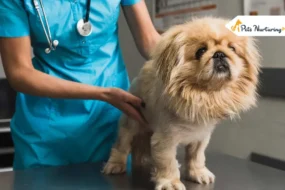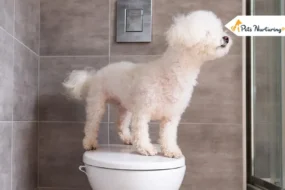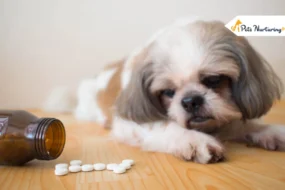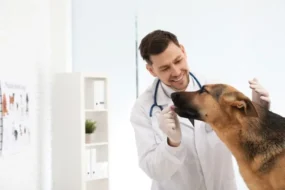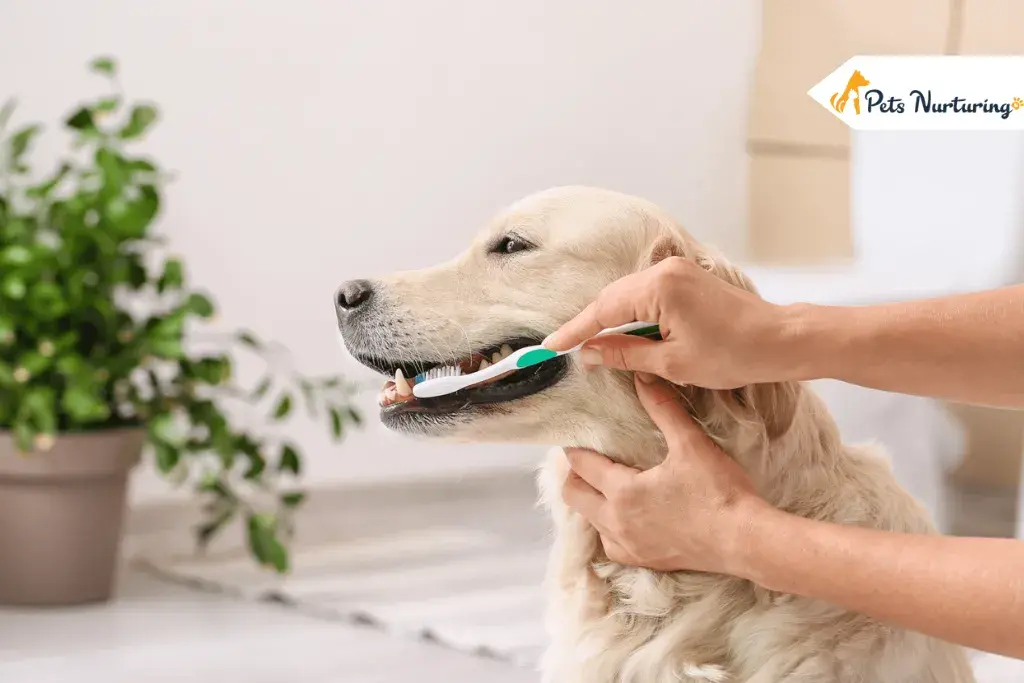
Did you know that your dog’s mouth requires daily attention just as yours does? Oral hygiene is a critical factor in your pooch’s overall health. Minor dental problems can progress into periodontal (gum) disease which, if left untreated, can lead to tooth loss. Serious life-threatening infections of the heart, kidney or liver. About 85% of dogs over the age of four experience some form of periodontal disease. Let’s see some Dental Tips For Dogs.
While regular brushing maybe your dog’s best defense against dental problems. There are other ways to help protect that happy smile and promote overall health. Here are six essential tips to help maintain your furry friend’s oral hygiene.
Start a Dental Routine Early
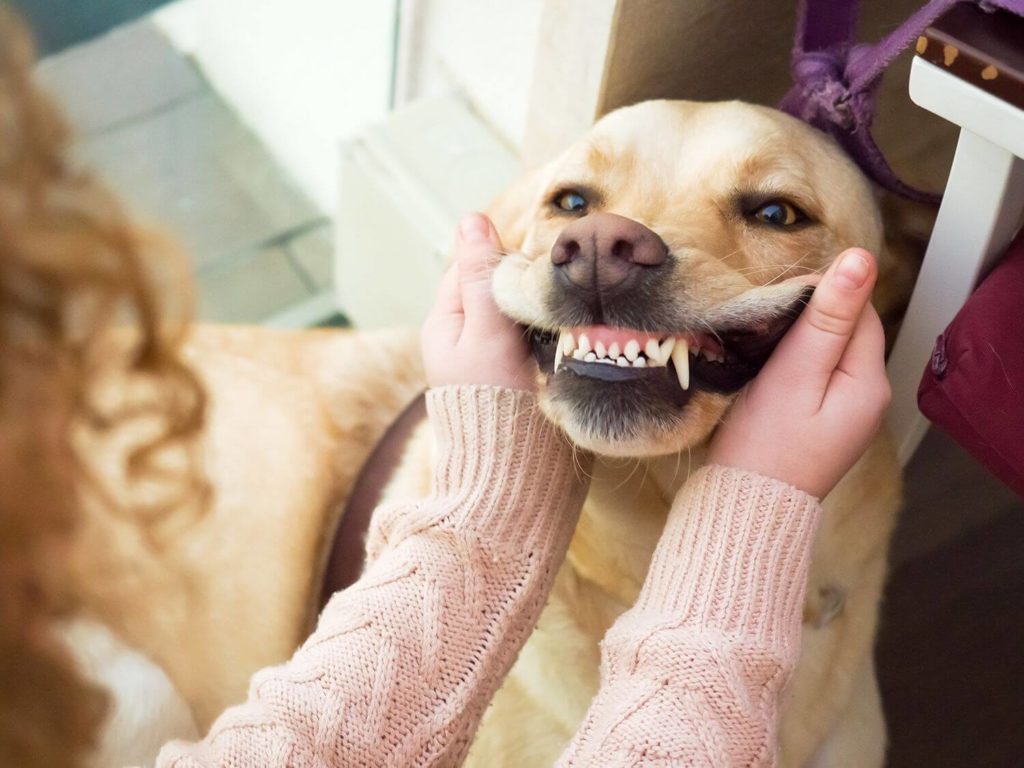
Canines begin to lose their puppy teeth around four months of age, so it’s important to establish a dental hygiene routine early. Although adult dogs can learn to become comfortable with teeth cleaning, it’s easier to introduce dental care when your pooch is still a puppy. If your grown dog needs some TLC in the dental department, take it slow and be patient with the process. Remember to offer praise and rewards when he or she exhibits good behavior.
Examine Your Pet’s Mouth Regularly
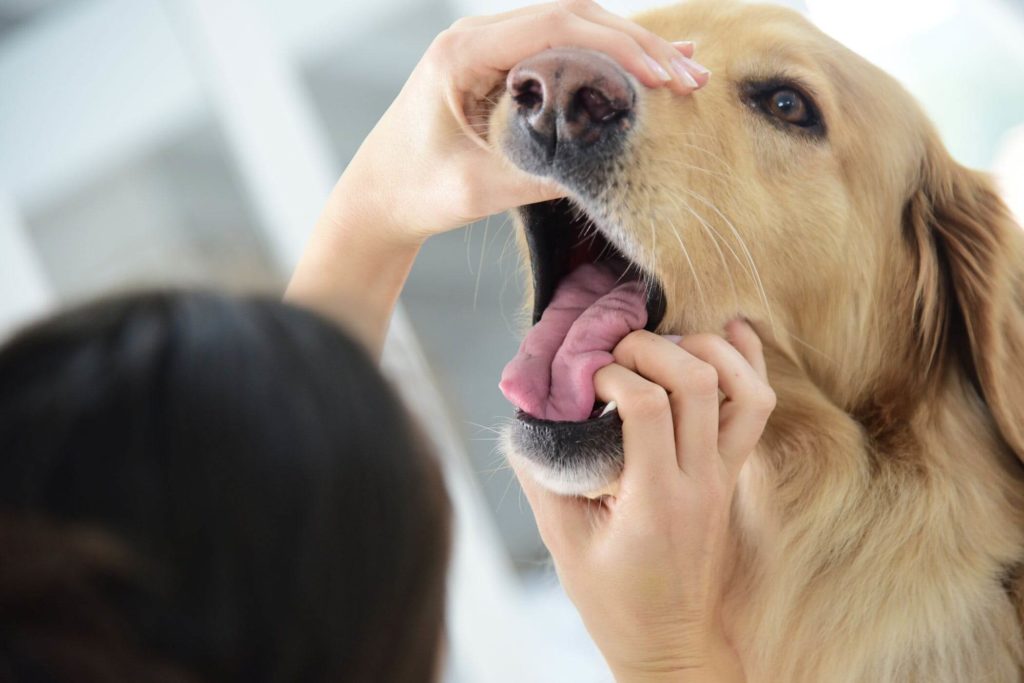
Routinely checking your pet’s mouth can help you detect signs of oral disease. A healthy canine mouth should have clean, intact teeth that are free of plaque and tartar, and a tongue that is salmon pink, moist and devoid of any cuts or lumps. Inspect for problems such as yellow or brown tartar, loose teeth, abnormal swellings or growths, excessive drooling, redden gums and bad breath accompany by vomiting, loss of appetite or excessive urination. These may be signs of periodontal disease and should be check by a veterinarian.
Introduce a Diet for Healthy Teeth
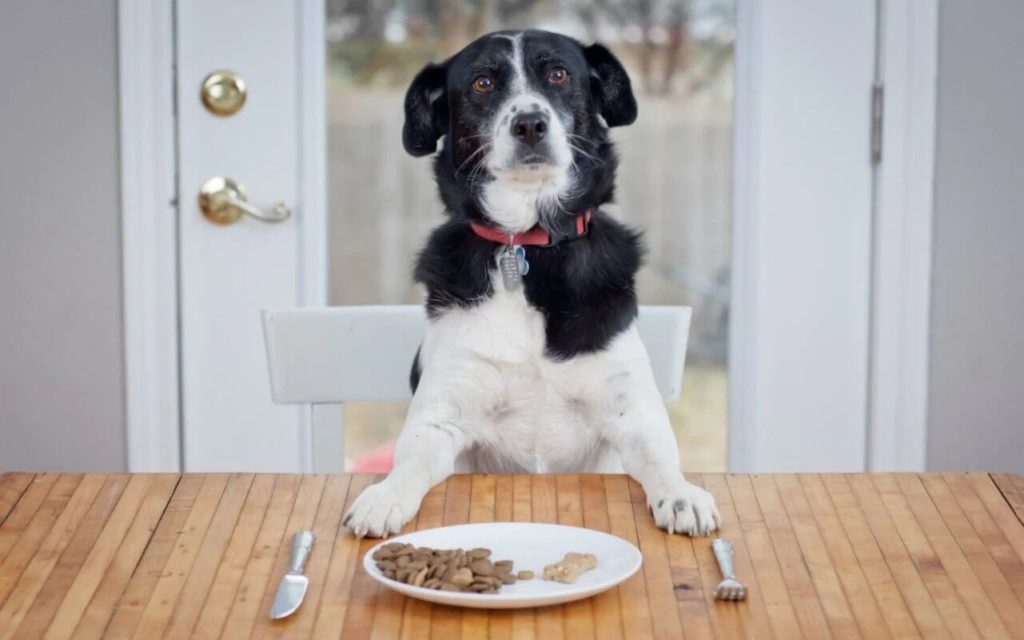
Specially formulated dry food may help slow the formation of plaque and tartar since soft versions are more likely to stick to teeth and cause decay. Ask your vet for advice about a diet that will keep your pup’s teeth in good condition. Avoid feeding your dog table scraps, especially sugary foods that can lead to cavities. Instead, offer doggy dental treats, which are designed to keep your pet’s pearly whites clean and its breath fresh by removing plaque buildup. Dental treats are available in most pet stores and come in a variety of shapes, sizes, and flavors.
Remember to Brush Daily
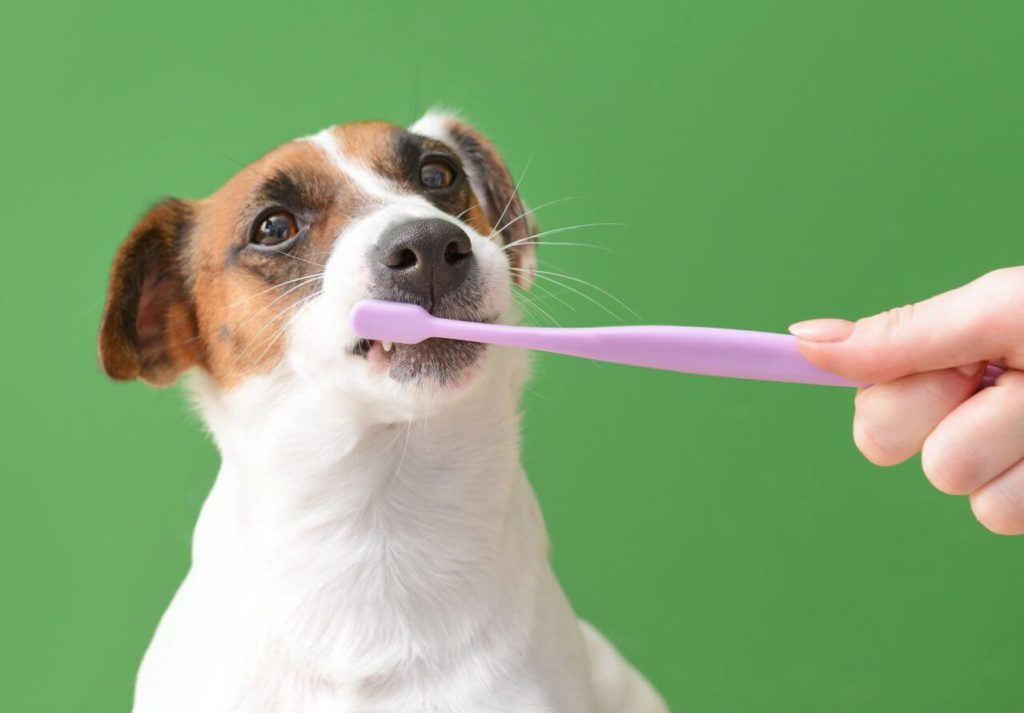
Bacteria and food can cause plaque to build upon your pup’s teeth. This can potentially harden into tartar, which can lead to receding gums, tooth loss or gingivitis. At-home care such as regular brushing can help stave off dental diseases. Be sure to use a soft-bristle brush and pet-friendly toothpaste. Avoid using your toothpaste to clean your dog’s teeth — it may contain fluoride, which in high doses is extremely poisonous to canines.
Hold the toothbrush at a 45-degree angle to the tooth surface with the bristles pointing toward the gums and work in circular motions. Concentrate on the outside surface of the teeth and aim to spend about 30 seconds on each side of your dog’s mouth. Gradually increase the number of teeth you brush and work your way up to opening your pet’s jaw to brush the back molars.
If your hectic schedule can’t accommodate daily brushing, aim for three or four times per week. Also, consider wiping your pet’s teeth and gum line frequently to whisk away food and bacteria when there’s no time for brushing. A dental cleaning pad or piece of gauze wrapped around your finger can do the trick.
Offer Safe Chew Toys
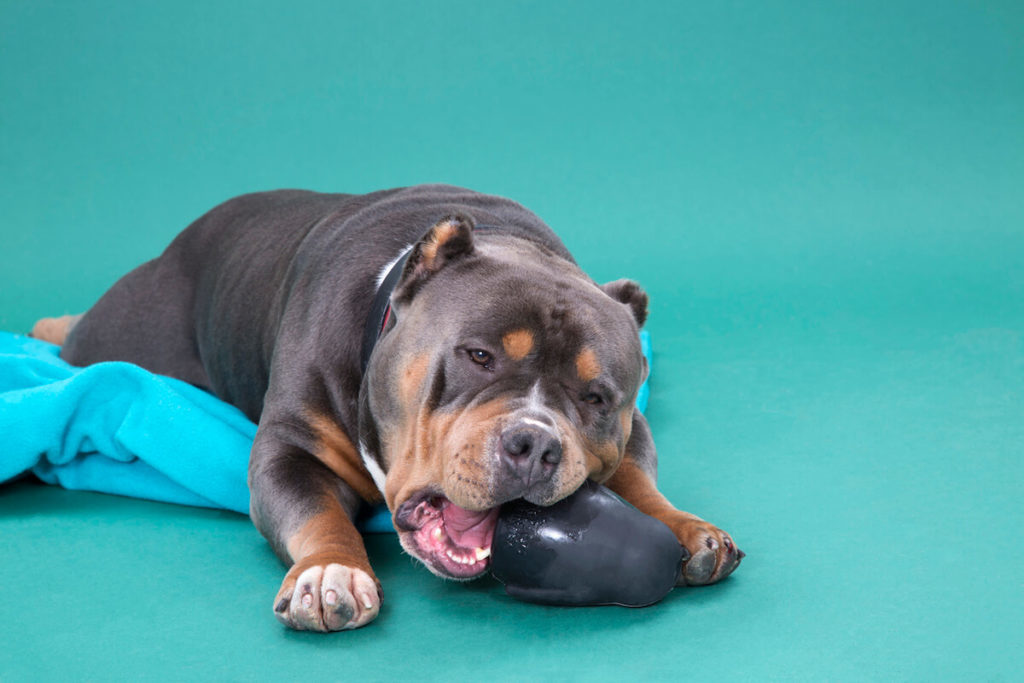
Many dog chews are designed with rubber grooves to promote teeth-cleaning. The act of gnawing scrapes plaque off teeth and massages the gums. Dog chews can help satisfy your canine’s natural desire to chomp while strengthening his or her teeth at the same time. Dog toys made of nylon and rubber are great for maintaining healthy oral hygiene. Real bones, tennis balls, animal hooves, and compressed rawhide can be dangerous for your pet as these can cause dental erosion, chipped teeth and digestive issues if pieces are swallowed. Always supervise your pup’s chewing to avoid accidental choking.
Schedule Periodic Professional Cleanings
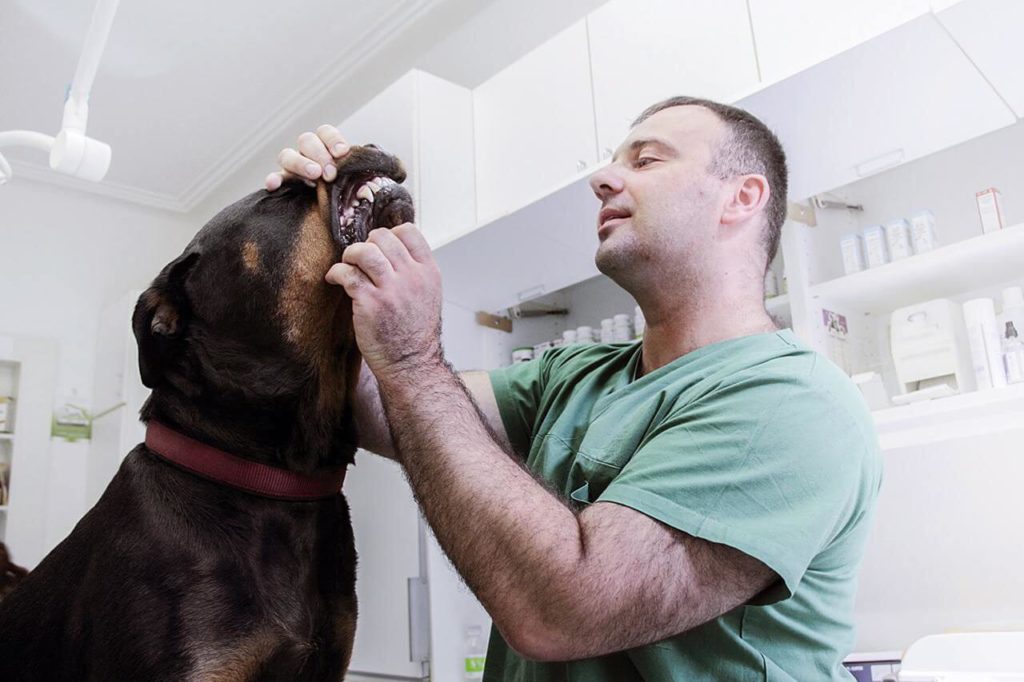
Your dog’s teeth and gums should be checked every six to 12 months by your veterinarian to keep its mouth healthy and pain-free. A veterinarian is experienced in preventing, locating and treating dental issues that may be lurking beneath the gum line. Your vet also can determine if your dog requires a dental cleaning or other procedure under general anesthesia.
Conclusion
Adequate dental care — both at home and from a professional — is an important part of your dog’s health care routine. By following these tips and tricks, you can keep your pooch healthy from tooth to tail.
Find out more:








